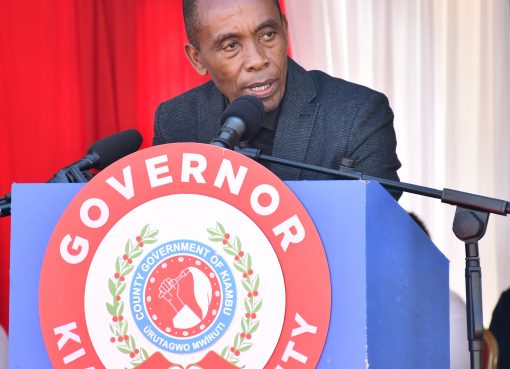The government, in collaboration with various partners, has embarked on different mechanisms to empower technical education in the country.
Speaking at Kiirua Technical Training Institute, which was holding its second graduation ceremony, TVET PS Dr. Esther Muoria said the most recent of such mechanisms is the adoption of the new funding model in TVET institutions, which will ensure equity and access to TVET courses for all learners.
Dr. Muoria said the model will also support financial sustainability in the institutions for enhanced provision of services to key stakeholders, the students.
“The government has embarked on TVET and university funding, all under the ministry of education, through the use of means testing, where we are going to look into the ability of various families so that when we find that a family or a student is extremely vulnerable, then the government is going to fund them at a higher level of 80 per cent and for 20 per cent they can acquire loans.
For the extremely needy, the government can fund them at 30 per cent and they can have 70 per cent of HELB loans, whereas for the needy, the government will fund them at 58 per cent and the rest of the percentages they can acquire loans from HELB,” said Dr. Muoria.
For those who are able, their parents will be required to pay for their training, added the PS, noting that the department is also partnering with other development partners in the implementation of the dual training system to ensure that the institutions train in, by and for the industry.
“Dual training will equip our students with hands-on industry-required skills for the labour market and ultimately expand their employment opportunities both locally and internationally.
“It is projected that our graduates will be better prepared for the industries we expect them to operate in and will be more effectively absorbed by the industries after completion of their studies,” she said.
In the spirit of globalization, the PS said that the department was in the process of exploring collaborations with different international partners for the employment of graduates.
The PS said the intention of this was to expand the scope of the job market as well as provide a regulated global work exposure to the youth.
“I therefore encourage TVET institutions in the entire country to initiate the training of key foreign languages like German, French, and Mandarin to be undertaken by students who wish to work abroad in their various disciplines,” said Dr. Muoria.
The PS added that a robust curriculum and career reform has been initiated by the department through the implementation of Competency Based Education and Training (CBET), whose main aim is to reorient students from theory-based training to higher industry-based training.
The Institute’s Principal, Dr. Jackson Mbae, noted that the institution has experienced remarkable growth in various facets, including infrastructure and the growth in the student population, which has been on a positive trajectory, with the current enrollment standing at 3,500 compared to 1,000 in 2021.
He also appreciated the support the government has accorded the institution in terms of placement of students through KUCCPS and NYS initiatives, student capitation, HELB loans and bursaries, recruitment of trainers, and capacity building of staff in various fields.
“I also sincerely appreciate the ministry of education’s effort to enhance competence by giving mandates to national polytechnics to develop their own curriculum, assessment, and certification for the graduates of which we are partakers,” said Dr Mbae.
During the ceremony, which saw 486 students graduate in various fields, the institution also launched a strategic plan which will guide them up to 2027.
By Dickson Mwiti





